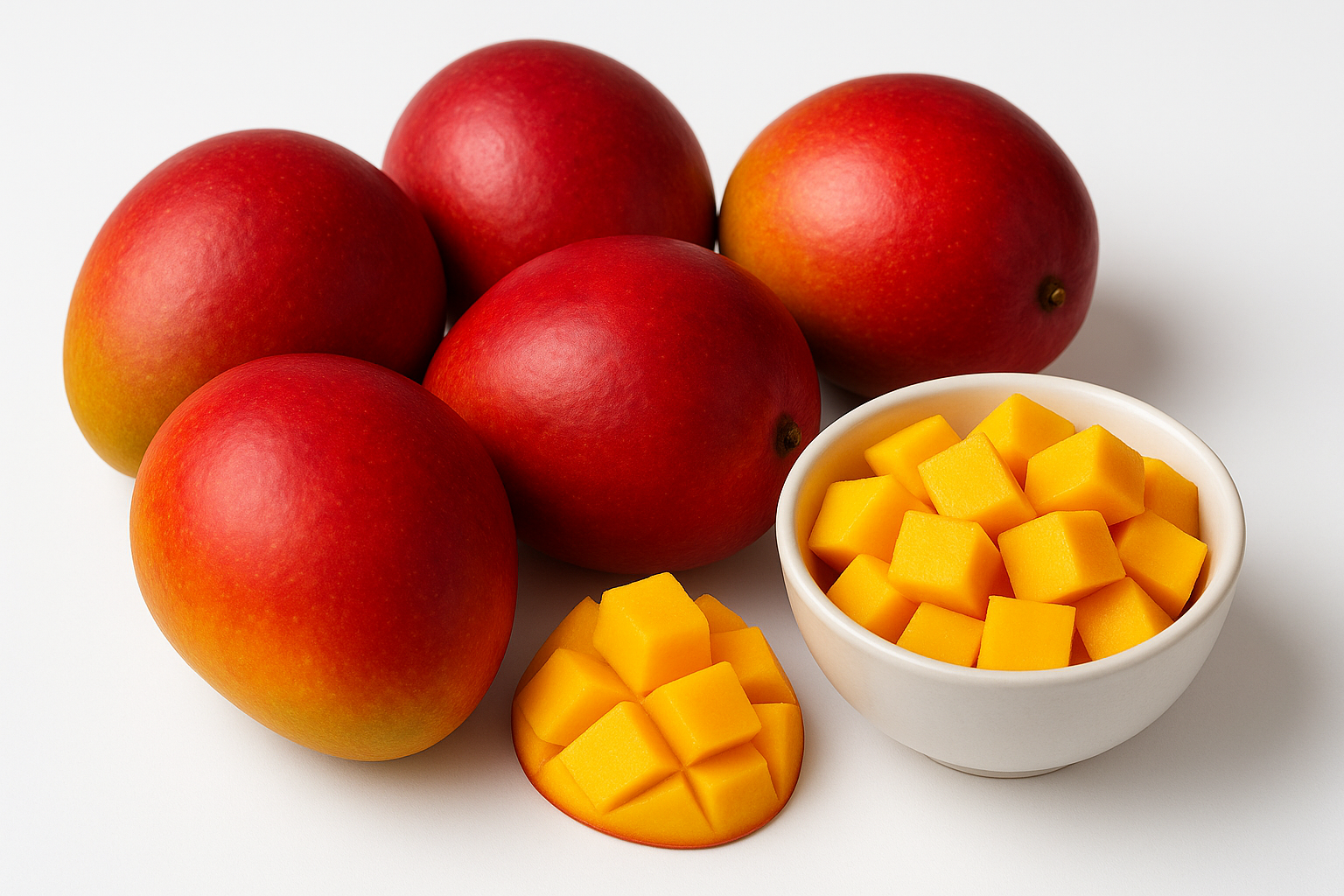Study Finds Daily Mango May Help Support Blood Sugar Control
We often think about how much sugar is in our diets, but just as important is how the body uses it. Insulin helps move sugar into cells for energy, making it essential for keeping blood sugar in balance. When our bodies become less sensitive to insulin – known as insulin resistance – it can become harder to maintain healthy blood sugar levels.
The good news: new research finds that enjoying two cups of mango daily may help improve insulin sensitivity and reduce risk factors linked to conditions like type 2 diabetes.
The Sweet News: Mango and Insulin Sensitivity
A new study published in the journal Nutrients explored whether mango, a naturally invigorating source of natural sugars and fiber, could help support better blood sugar control. Researchers focused on adults with overweight or obesity with chronic low-grade inflammation, a group more likely to experience insulin resistance, who ate two cups of fresh mango daily for four weeks.
The results were promising: compared to the group that did not eat mangos, mango eaters showed improved insulin sensitivity, healthier beta-cell function (which helps the body produce insulin), and no increase in body weight.
While more research is needed to fully understand these benefits, the findings suggest that eating mango daily may help the body respond to insulin more effectively, supporting better blood sugar control over time. And despite its natural sweetness, mango had no negative impact on weight—helping debunk the myth that sugar from whole fruit should be avoided.
Naturally Invigorating Nutrition
Mango offers more than just natural sweetness: it’s a nutrient-dense fruit with an invigorating combination of fiber and over 20 vitamins and minerals that support overall wellness.
The fiber in mango supports digestion and helps slow the release of sugar into the bloodstream. Paired with natural sugars, this creates a steady source of energy without spikes or crashes. This balance may help explain why mango also supports improved insulin sensitivity.
Mango is a delicious source of nourishing nutrients. It’s an excellent source of vitamin C to support immune health, a good source of folate and copper for energy and cell function. It is also source of vitamin A which is essential for skin, as well as polyphenols like beta-carotene that may provide antioxidant and anti-inflammatory benefits.
Easy Ways to Taste the Joy of Mangos
Looking to add mango to your daily wellness routine? Here are some simple ideas:
- Morning Boost: Blend mango chunks into your smoothie for a tropical twist.
- Salad Enhancer: Add diced mango to salads for a sweet and nutritious addition.
- Snack Time: Enjoy fresh mango slices on their own or paired with a handful of nuts.
- Dessert Delight: Make Frozen Yogurt-Dipped Mango Pops with Greek yogurt and honey
Craving More Mango Nutrition?
Learn more about the other ways mango supports wellness in our other blog post: The Naturally Invigorating Nutrition of Mangos. Don’t forget to check out Mango.org/Nutrition for more.
Note: Always consult with a healthcare professional before making significant changes to your diet, especially if you have health conditions or specific dietary needs.




